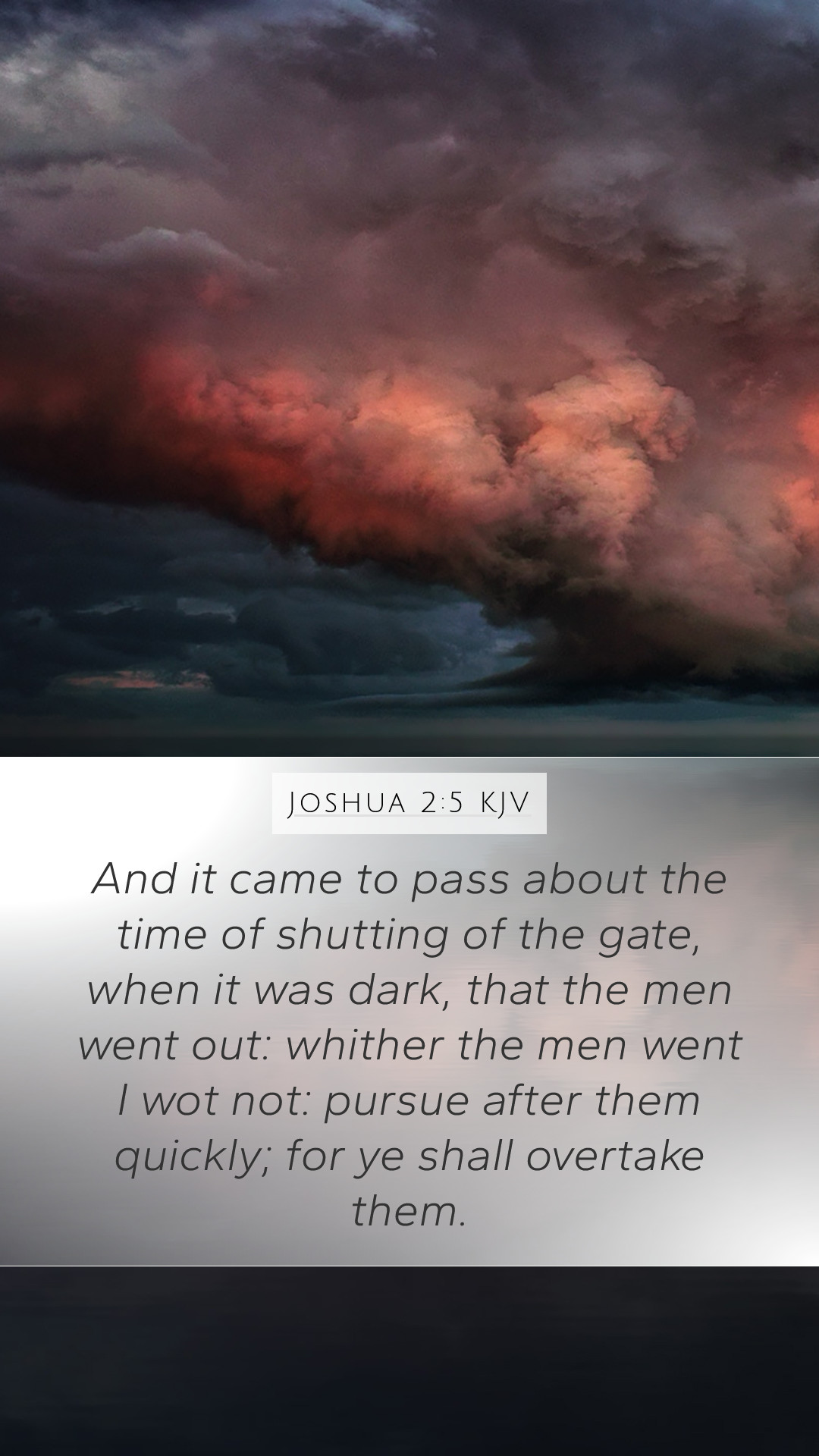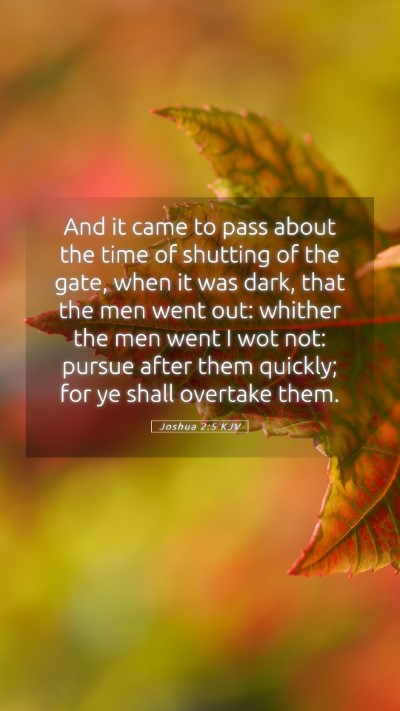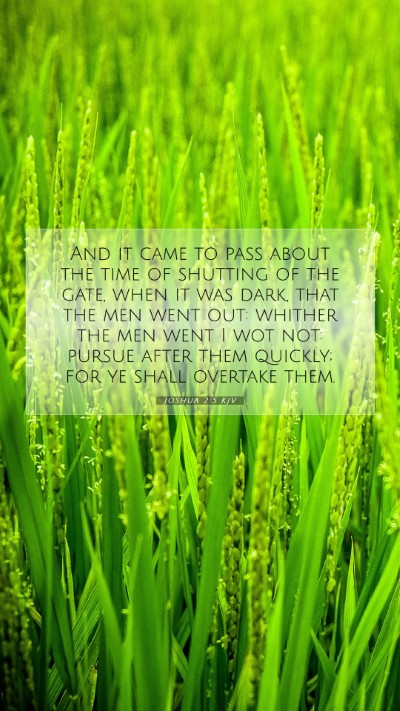Old Testament
Genesis Exodus Leviticus Numbers Deuteronomy Joshua Judges Ruth 1 Samuel 2 Samuel 1 Kings 2 Kings 1 Chronicles 2 Chronicles Ezra Nehemiah Esther Job Psalms Proverbs Ecclesiastes Song of Solomon Isaiah Jeremiah Lamentations Ezekiel Daniel Hosea Joel Amos Obadiah Jonah Micah Nahum Habakkuk Zephaniah Haggai Zechariah MalachiJoshua 2:5 Meaning
What is the meaning of Joshua 2:5?
And it came to pass about the time of shutting of the gate, when it was dark, that the men went out: whither the men went I wot not: pursue after them quickly; for ye shall overtake them.
Joshua 2:5 Bible Verse Meaning
Exploring the Meaning of Joshua 2:5
Joshua 2:5 states: "And it came to pass about the time of shutting of the gate, when it was dark, that the men went out: whither the men went I wot not: pursue after them quickly; for ye shall overtake them." This verse is a part of a greater narrative found in the Book of Joshua, which reflects themes of faith, deception, and divine providence.
Biblical Context
In this verse, we find Rahab, a woman of Jericho, conversing with the king's men who are searching for the Israelite spies that she has hidden. The context is crucial for understanding the dynamics at play. Rahab's actions not only reveal her cunning but also her faith in the God of Israel, contrasting her actions against the backdrop of the impending conquest of Jericho.
Insights from Public Domain Commentaries
-
Matthew Henry's Commentary:
Henry emphasizes the courage Rahab exhibited in hiding the spies, noting that she not only protected their lives but also displayed a remarkable level of faith in God’s plans for Israel. He highlights the tension between her allegiance to her people and her belief in the Lord's promises.
-
Albert Barnes’ Notes on the Bible:
Barnes comments on the strategic decisions made by Rahab, emphasizing the darkness as a metaphor for both the physical and spiritual blindness of the city of Jericho at that time. He illustrates how Rahab, despite her status as a harlot, played a pivotal role in God's redemptive plan.
-
Adam Clarke's Commentary:
Clarke provides an analysis of the historical and cultural context of Rahab's actions. He points out that her deception was not merely a lie but a calculated act of faith that ultimately served a greater purpose in God’s narrative. He illustrates contrasts between Rahab and the Israelites, underscoring her remarkable faith.
Understanding the Interpretation
This verse can be dissected into several layers of understanding:
- Faith Amidst Deception: Rahab's actions raise ethical questions around truth and deception. Her faith in God's coming judgment allowed her to act in a way that furthered the Israelites’ mission.
- Divine Providence: The hiding of the spies and Rahab’s protective instincts demonstrate God’s sovereignty in using unexpected individuals to fulfill His promises.
- Historical Context: The narrative details the political and cultural tensions of the time, emphasizing a transition of power from Jericho to Israel, showcasing the fulfillments of God’s promises to His people.
Applications for Today
Readers are encouraged to reflect upon the various lessons from this verse:
- Faith in Action: Like Rahab, individuals in uncertain positions can act with conviction and faith.
- God’s Ability to Use Anyone: Your background does not disqualify you from being used by God for His purposes.
- Trust in Divine Plans: In the face of societal pressure or ethical dilemmas, trusting in God’s overarching plan is vital.
Cross References
- Hebrews 11:31 - Rahab's faith makes her a notable figure in the "Hall of Faith".
- James 2:25 - Highlights Rahab's actions as an example of justified faith.
- Joshua 6:17 - The significance of Rahab's faith in the story of Jericho's fall.
Conclusion
Joshua 2:5 encapsulates themes of sacred history, personal faith, and divine providence. Through the lens of public domain commentaries, we can appreciate the depth of Rahab’s actions and the historical context surrounding them. Each analysis serves to deepen our understanding of Scripture, allowing us to gain valuable Bible study insights, enhance our Bible verse interpretations, and apply these lessons in our daily lives.


